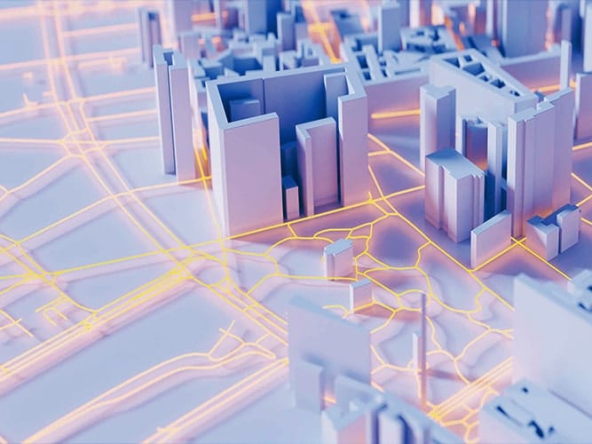In an era where technology is rapidly advancing, the integration of Internet of Things (IoT) devices is transforming various industries, and real estate is no exception. Smart Property Management, powered by IoT devices, has emerged as a game-changer, offering innovative solutions to enhance security, optimize energy consumption, and streamline operations. In this blog post, we delve into the world of IoT devices, exploring their impact on property management.
Understanding IoT in Property Management
Defining IoT Devices
Before we dive into their applications in property management, it’s crucial to understand what IoT devices are. IoT devices are physical objects embedded with sensors, software, and connectivity features, enabling them to collect and exchange data over the internet. In the context of property management, these devices work collaboratively to create a connected ecosystem.
The Role of IoT in Property Management
Smart Property Management leverages the capabilities of IoT devices to automate tasks, gather real-time data, and enhance decision-making processes. From residential buildings to commercial spaces, IoT devices contribute to creating intelligent environments that prioritize efficiency, sustainability, and security.
Key IoT Devices Shaping Smart Property Management
1. Smart Security Systems
Enhancing security is a paramount concern in property management. IoT-powered security systems offer a comprehensive approach to safeguarding properties. Smart cameras, doorbell cameras, and motion sensors can be integrated to provide real-time surveillance. These devices not only deter potential threats but also allow property managers to monitor activities remotely.
2. Smart Thermostats and Climate Control
IoT devices play a crucial role in optimizing energy consumption within a property. Smart thermostats, for instance, learn the occupants’ preferences and adjust temperature settings accordingly, leading to energy savings. Additionally, climate control systems connected to IoT networks enable property managers to remotely monitor and manage heating, ventilation, and air conditioning (HVAC) systems.
3. Smart Lighting Solutions
Efficient lighting not only contributes to energy conservation but also enhances the overall experience for occupants. Smart lighting systems, integrated with IoT devices, can be programmed to adjust brightness based on natural light conditions or occupancy. This not only reduces energy costs but also adds an extra layer of convenience for property managers.
4. IoT-Enabled Access Control
Traditional key-based access systems are being replaced by IoT-enabled access control solutions. These include smart locks and access cards that can be managed remotely. Property managers can grant or revoke access, monitor entry logs, and enhance security with features such as biometric authentication.
The Benefits of Implementing IoT in Property Management
1. Enhanced Security
One of the primary advantages of incorporating IoT devices in property management is the bolstering of security measures. Real-time monitoring, automated alerts, and remote access contribute to a robust security infrastructure, deterring potential threats and minimizing risks.
2. Improved Energy Efficiency
Smart energy management, facilitated by IoT devices, leads to significant cost savings and a reduced environmental footprint. Property managers can analyze energy usage patterns, identify inefficiencies, and implement strategies to optimize consumption.
3. Streamlined Operations
Automation of routine tasks through IoT devices streamlines property management operations. From monitoring utility usage to addressing maintenance needs, these devices free up valuable time for property managers, allowing them to focus on strategic decision-making.
4. Enhanced Tenant Experience
The integration of IoT devices also contributes to a more comfortable and convenient living or working environment for tenants. Smart thermostats, lighting controls, and other amenities enhance the overall experience, making properties more attractive to potential occupants.
Challenges and Considerations
While the benefits of IoT devices in property management are substantial, it’s essential to be mindful of potential challenges. These may include cybersecurity concerns, compatibility issues, and the need for ongoing maintenance and updates. Property managers should invest in robust cybersecurity measures and ensure that IoT devices are seamlessly integrated into existing systems.
The Future of Smart Property Management
As technology continues to advance, the landscape of property management will evolve in tandem. The future holds the promise of even more sophisticated IoT devices, offering unprecedented levels of connectivity and automation. Property managers who embrace these innovations will find themselves at the forefront of a more efficient, secure, and sustainable real estate industry.
Conclusion
In conclusion, IoT devices are redefining the way properties are managed. From bolstering security to optimizing energy usage, these devices contribute to the creation of smart environments that prioritize efficiency and convenience. As the real estate industry continues to embrace technological advancements, the integration of IoT devices is poised to become standard practice, shaping the future of property management. Stay tuned for more updates on the exciting intersection of IoT and real estate.




